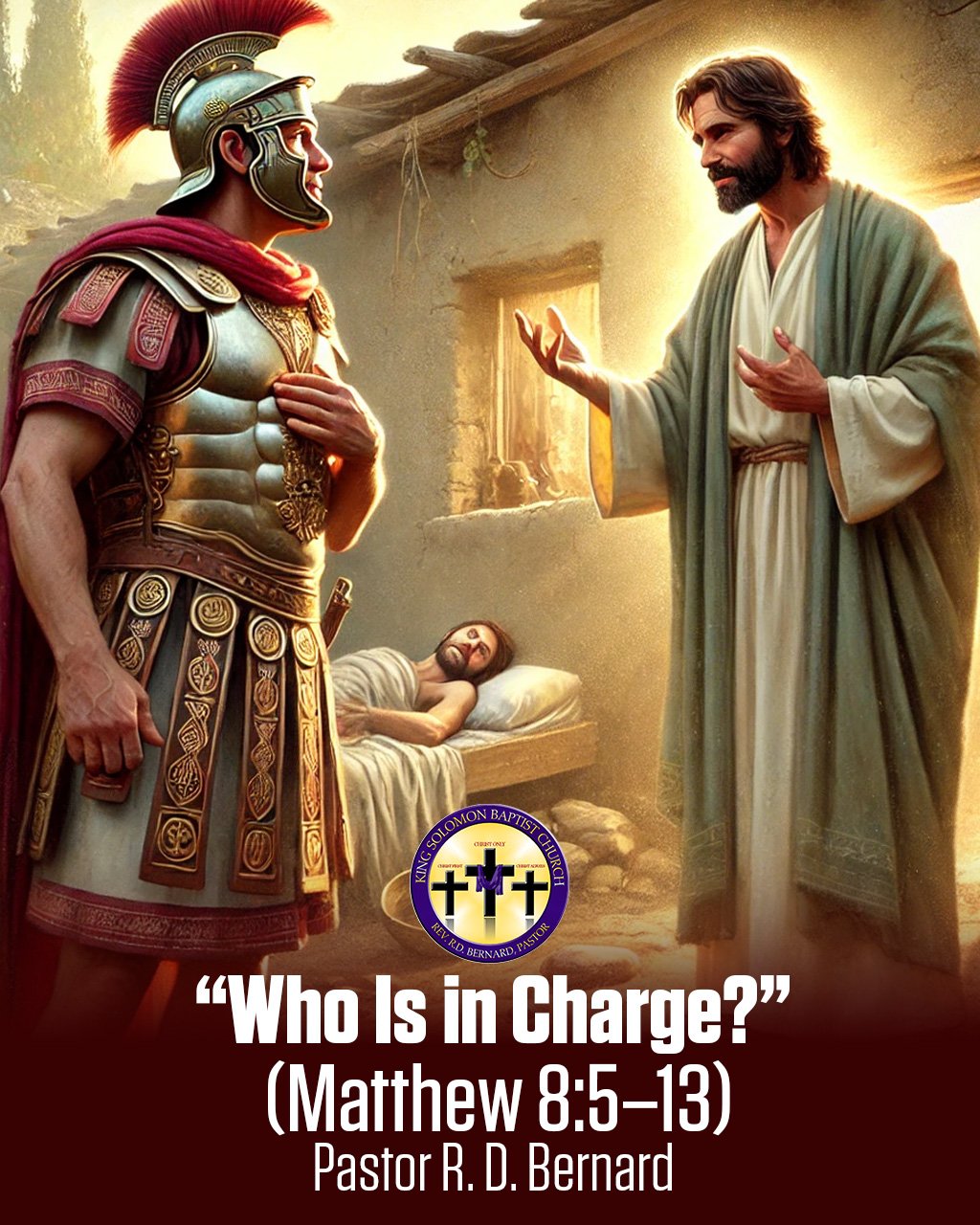
“Who Is in Charge?” (Matthew 8:5–13)
“Who Is in Charge?” (Matthew 8:5–13)
This passage captures the meeting of two men of importance. There was Jesus, the itinerant rabbi, who though unorthodox in His training (He did not come up through the ranks of the religious aristocracy), His methods had proven effective.
Then there was the centurion, the Roman military officer. He was the leader of 100 hardened soldiers. The centurion’s command was stationed far from Rome; increasing the likelihood that he had seen his share of military conflict. His success was due to the soldiers under him being able to follow his commands without question. His methods had also proven effective.
The occasion recorded by Matthew, was one in which the centurion had a problem: his servant was “lying paralyzed at home, suffering terribly” (Matthew 8:6). We are not told anything else about this person but we are told enough. He is not a man of immediate importance because he is a servant, and to top it off, he is sick.
Undoubtedly, a man of great importance, like the centurion, had many servants. But this one was so important to him that he sought Jesus out personally. The centurion didn’t send a second servant to Jesus about the first servant: he came himself.
He came out of a sense of concern about the physical health of his servant. The point is this. Everybody loves somebody and when the one we love needs help, you will seek that help from someone you believe can provide it.
But that alone doesn’t mean that they will get the best help possible. For example, sick people do argue with doctors. The relatives of sick people sue doctors. The ignorant relatives of the sick person curse the doctors out.
The only way that the one who is loved (but is weak or somehow not as powerful as the others) can get the help that they need is that the right one has to be in charge or have the last say. Will it be the doctor, the sick person (the patient), or one of the patient’s relatives?
If the centurion’s servant was going to be healed, then Jesus needed to be in charge – not the centurion, nor the centurion’s servant. Consider the following four points.
1. The effectiveness of ministry is determined by who is in charge.
- a. The centurion’s servant was sick (Matthew 8:6; Luke 7:2).
- b. The centurion had social standing.
- i. The officer explained to Jesus that he understood the nature of the authority that Jesus must have, by making a parallel to his own military authority (Matthew 8:9).
- ii. In the companion account of Luke 7:2-10, it was implied that the centurion was also rich (Luke 7:5). In fact, he was rich enough to fund the building of a church building.
2. The sin-sick have no say.
- a. The sick (sin-sick) must submit to those in authority
- i. Jesus made demons hold their peace about His identity (Mark 1:43–45; 5:41–43; Matthew 9:30).
- ii. The Centurion came on behalf of his sick servant (Matthew 8:6).
- b. God’s word has power over sickness (Psalm 107:20; Matthew 8:16; Proverbs 4:20–22).
- c. Paul and Barnabas rejected the worship of those who worshipped them in ignorance (Acts 14:8–18).
3. The sickness is often within us.
- a. Without Christ, we are alienated from God (Ephesians 4:18).
- b. Minds must be renewed in the image of Christ (Romans 12:2; Ephesians 4:22–24; Colossians 3:10).
4. The Word of Lord (when allowed pre-eminence) will cure sickness.
- a. The centurion told Jesus that he understood authority, and he asked Him to just “speak the word only and my servant shall be healed” (Matthew 8:8).
- b. The centurion didn’t even invite Jesus to his house. In fact, he told Jesus in Luke 7:6, “I am not worthy that thou shouldest enter under my roof.”
“Christ First, Christ Only, Christ Always”
